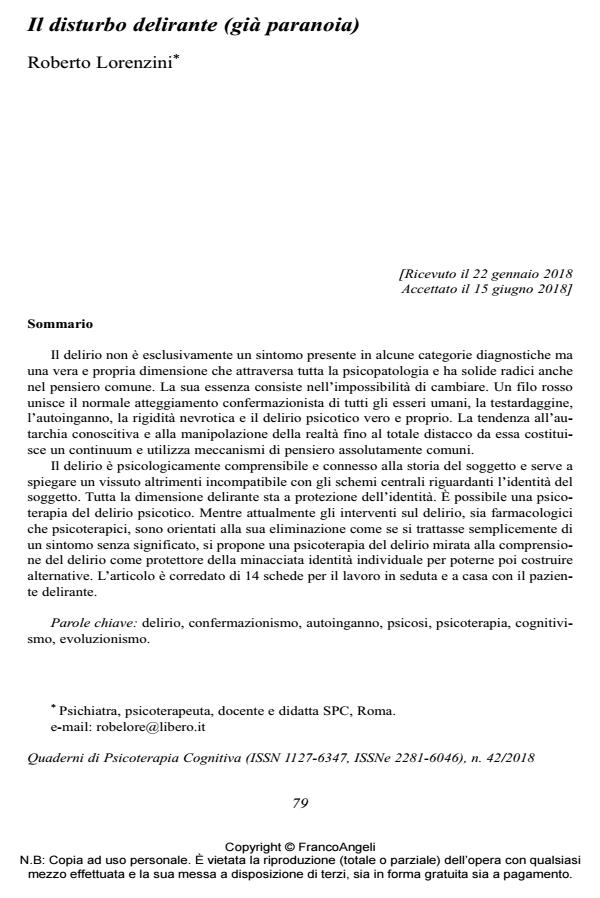The delusional disorder (formerly paranoia)
Journal title QUADERNI DI PSICOTERAPIA COGNITIVA
Author/s Roberto Lorenzini
Publishing Year 2018 Issue 2018/42
Language Italian Pages 17 P. 79-95 File size 114 KB
DOI 10.3280/QPC2018-042006
DOI is like a bar code for intellectual property: to have more infomation
click here
Below, you can see the article first page
If you want to buy this article in PDF format, you can do it, following the instructions to buy download credits

FrancoAngeli is member of Publishers International Linking Association, Inc (PILA), a not-for-profit association which run the CrossRef service enabling links to and from online scholarly content.
Delirium has not to be considered just as a manifestation of a wider disease, but it is in fact an independent dimension, ranging from pathology to normality. It is mainly characterized from an inability to change that can be considered the common base of many behaviors, spreading over the whole spectrum of human functioning, from stubbornness and obstinacy to the more problematic psychotic delusion. Delirium can be explained as a psychological mechanism strictly connected with the life of the subject and it is necessary to maintain a coherence in the identity of the person while facing intolerable events. In this view, delirium is considered as a protection for the individual. It is possible to cure the delirium. While the present approaches, both psychological and pharmacological ones, focus on eliminating delirium as if it was a simple symptom of the disease, in this paper we propose a psychotherapy of delirium that aims to the comprehension and definition of it as a defense for the individual personality, and a subsequent reorganization of alternative strategies. The paper provides 14 sheets for working with the patients, both in a clinical and in a domestic setting.
Keywords: Delirium, confirmation attitude, self-deception, psychosis, cognitive psychotherapy, evolutionism
Roberto Lorenzini, Il disturbo delirante (già paranoia) in "QUADERNI DI PSICOTERAPIA COGNITIVA" 42/2018, pp 79-95, DOI: 10.3280/QPC2018-042006